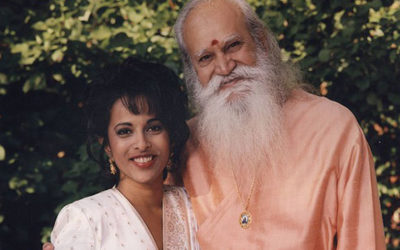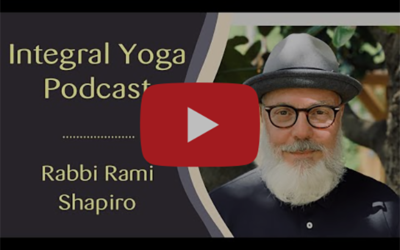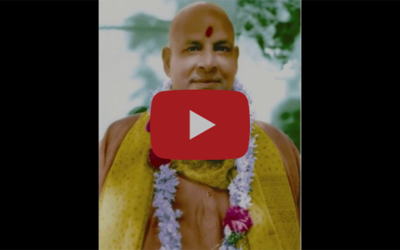Education
Explore Latest Posts
Remembering Uma Devi Pemmaraju
Uma Devi Pemmaraju passed away in early August 2022 at the age of 64. She was the daughter of the late Dr. P. N. Rao and his wife, Rani, mother of Kirana Petkun. The entire family, including Uma's siblings, Dr. Rama Pemmaraju and Dr. Shankar Pemmaraju, were longtime...
Yoga for Your Mood: Practices to Shift Depression and Anxiety
Join Amy Weintraub, the leader in Yoga therapy for depression, for this online workshop hosted by Satchidananda Ashram–Yogaville from October 1 – 2, 2022. Don’t stay stuck in a bad mood or thinking that limits you. Not only will these practices shift your mood, but...
Healing Relationships Online Teacher Training
Join Sandra Susheela Gilbert, E-RYT 500, C-IAYT from Nov. 30–Dec. 17, 2022 in this "Healing Relationships" Teacher Training, part of the Integral Yoga Therapist Certification program and sponsored by the Integral Yoga Institute of San Francisco. More information and...
Early Fall/Winter 2022 Silent Retreats at Yogaville
Integral Yoga's offerings of early Fall and Winter silent retreats held at Satchidananda Ashram–Yogaville, In spiritual practice, can be found here with dates and further information. Join us to experience a silent retreat under the guidance of skilled Integral Yoga...
Rabbi Rami Shapiro: To Be a Blessing to All the Families of the Earth
In this latest episode of the Integral Yoga Podcast, Avi Gordon (director of Integral Yoga Teachers Association) and Rabbi Rami Shapiro discuss freedom of belief, tribalism, silence, gratitude, changing the world without antagonism, and the divine feminine. Rabbi Rami...
Celebrating the 135th Birth Anniversary of H. H. Sri Swami Sivananda
In honor of the 135th Jayanthi (birth anniversary) of H.H. Sri Swami Sivanandaji (the Guru of Sri Swami Satchidananda), we hope you will enjoy this wonderful video, “You are the Master of Your Destiny.” It features the actual voice of Sri Swami Sivanandaji, as well as...
What Kids with Special Needs Taught Me About Yoga
I looked over the damaged carrot patch. Bunnies had shorn the tops off; turning the frilly fronds into scant spikes. I sighed and wondered, Why do I bother? I was headed for trouble when I focused on “getting something” out of the garden. But this time the bunny...
You Can Create a Better World
In order to have a better world we must learn to think of the globe as a whole. Our world leaders need to be more selfless and sacrificing. Only by having a universal and spiritual vision can we bring positive change into the political field. A person who is really...
My Spiritual Journey with Karma Yoga
I don’t know about you, but the spirit of sacrifice and service has never come easy for me. In the early days of my spiritual journey, due to my self-absorption in “taking care of Number 1,” I used to cringe whenever Swami Satchidananda (Gurudev) talked about Karma...
How Do You Envision Your End-of-Life?
The End-of-Life Project is a living, breathing, and ongoing initiative to bring the Integral Yoga teachings to the end of our lives and beyond. We are grateful to Integral Yoga Magazine for supporting this program. During the dormancy of the pandemic a new branch of...










